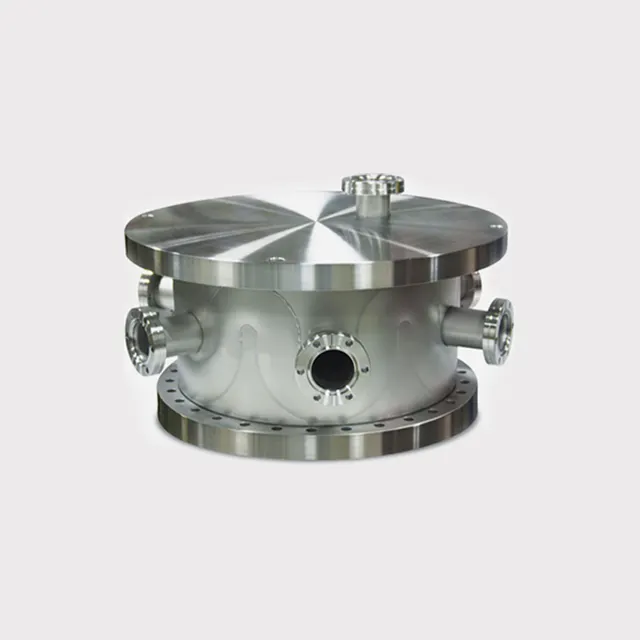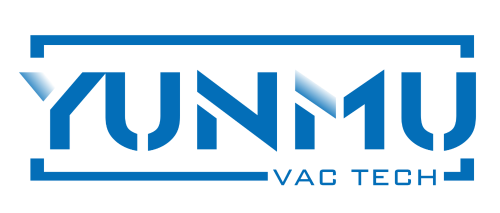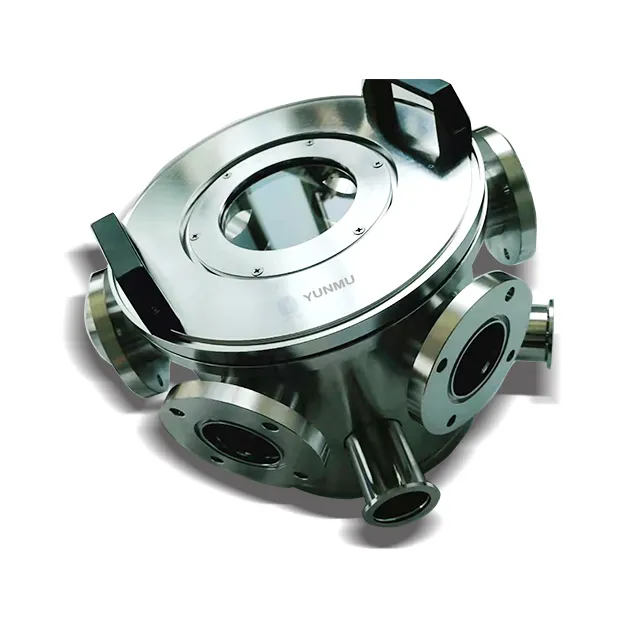Understanding Custom Vacuum Systems: Tailored Solutions for Precision
Key Differences Between Custom and Off-the-Shelf Systems
Unlike generic vacuum systems that come ready made for everyone, custom built ones address very particular requirements. This matters a lot in situations where getting things just right makes all the difference. What sets them apart is how they're crafted specifically for what the customer actually needs. Every detail gets attention during design phase whether it's about dimensions or how the system functions under different conditions. Most manufacturers find that these specialized setups beat standard models hands down when looking at both adaptability and accuracy factors. They simply work better because they fit exactly what's needed rather than trying to force something into place that wasn't meant for those exact circumstances.
Custom vacuum systems deliver enhanced performance suited to the user's specific applications. This contrasts with off-the-shelf systems, which might lack the necessary features for specialized tasks.
Custom systems do tend to come with bigger price tags upfront, but many companies find themselves saving money over time because these systems work better and break down less frequently. Take a look at what's happening in sectors like pharmaceutical research or satellite component manufacturing where tailor made approaches make all the difference. The semiconductor industry provides some interesting case studies too. When manufacturers install specialized vacuum systems instead of generic ones, they typically see their production cycles shorten while the final products come out consistently better quality. Some factories report cutting waste materials by nearly 30% after switching to customized equipment setups.
Industry-Specific Applications of Custom Vacuum Systems
Custom vacuum systems are employed across diverse industries, offering solutions tailored to each sector's unique needs. From semiconductor manufacturing to food processing, these systems play a critical role in enhancing operational efficiency.
The semiconductor industry uses custom vacuum systems for processes like Physical Vapor Deposition (PVD) and Chemical Vapor Deposition (CVD), providing precise environmental conditions for production. In food processing, custom systems address specific challenges such as sterile conditions and removing contaminants during vacuum packaging.
The market shows growing interest in customized solutions across various industries that need very specific operating conditions. We're seeing this play out in practice too - data points to rising numbers of companies adopting tailored vacuum systems, with some sectors expecting growth rates above 5% annually. Take pharmaceutical manufacturing for instance, where even minor deviations can affect product quality. Custom vacuum systems aren't just nice to have anymore; they've become essential equipment in these niche industrial settings where standard off-the-shelf options simply won't cut it.
Superior Performance in Complex Environments
Optimized Efficiency Through Custom Design
Custom vacuum systems are engineered to maximize operational efficiency, thereby enhancing performance in diverse applications. These tailored systems are designed to meet specific performance metrics, such as maximizing throughput or minimizing energy consumption.
Looking at real world examples in semiconductor manufacturing shows how much better things run when companies go for custom designs. These setups let manufacturers tweak environmental factors just right for their particular production needs. When it comes down to it, getting the engineering details right matters a lot for vacuum systems. A small change here or there can make all the difference in how well everything works together. We see this across different industries too. What works great for one sector might not cut it for another because every business has its own unique demands. That's why so many manufacturers end up going with tailored solutions rather than off the shelf options. Custom systems just tend to perform better over time despite the initial investment.
Adaptability to Challenging Operational Demands
Adaptability is a cornerstone of custom vacuum systems, enabling them to meet varied environmental and operational challenges. These systems are crafted to adapt to extreme conditions, such as those found in aerospace applications, where industry experts have lauded their effectiveness.
Tailoring solutions to fit particular operational needs means they can grow alongside changing business requirements, creating solid groundwork for improvements down the road. Take oil extraction for instance, an industry where day to day operations often change because of market conditions or regulatory shifts. Custom made vacuum systems offer real flexibility here. These systems aren't just adaptable, they become essential equipment when dealing with complicated situations on site. Workers find they stay effective even as conditions evolve, which keeps production running smoothly without constant downtime for adjustments.

Long-Term Cost Savings with Custom Vacuum Systems
Reduced Downtime via Targeted Engineering
Targeted engineering in custom vacuum systems significantly reduces downtime in operations. By integrating specific components and configurations tailored to a facilityâs unique needs, these systems ensure optimal performance and reliability.
A standard vacuum system might require frequent adjustments and longer maintenance periods, resulting in operational delays. In contrast, custom vacuum systems are engineered to work seamlessly within particular environments, minimizing interruptions.
According to industry reports, downtime costs can run into thousands of dollars per hour in manufacturing settings. With custom solutions, facilities can save substantial amounts by reducing these downtime incidents, emphasizing the value of investing in targeted engineering for operational efficiency.
Minimized Waste Through Precision Configuration
Precision configuration plays a vital role in reducing material waste during production with custom vacuum systems. By aligning system capabilities with specific production requirements, companies can enhance material efficiency and minimize resource waste.
Quantitative analysis reveals significant waste reduction attributable to these systems. For example, firms adopting custom vacuum configurations have reported up to a 30% decrease in material waste, leading to notable cost savings.
This precision not only boosts operational sustainability but also sets a benchmark for resource-efficient production practices. Several companies have successfully implemented these strategies, witnessing tangible reductions in waste and associated costs, underscoring the strategic advantage of adopting precision-configured systems.
Industries Benefiting Most from Customization
Semiconductor Manufacturing Requirements
Semiconductor manufacturing is a highly specialized industry that demands precision and efficiency. Custom vacuum systems are designed to meet these specific needs, ensuring optimal performance and minimizing the risk of contamination.
Precision is crucial in semiconductor processes to achieve higher yields and efficiency. Custom systems tailored for semiconductor production can enhance yield rates by addressing the unique environmental conditions needed for manufacturing microchips.
Statistical evidence supports this, showing that implementing custom solutions can lead to a significant increase in manufacturing efficiency, with some companies reporting up to a 15% improvement in yield. These targeted systems provide reliability and consistency in operations, which are essential for maintaining competitive advantages in the semiconductor market.
Aerospace Testing and Material Science Applications
Custom vacuum systems are invaluable in aerospace testing and material science applications. These industries require adherence to strict testing standards, and customized vacuum solutions are designed to ensure compliance.
In material science, vacuum systems play a pivotal role in research and development, offering precise control over experimental environments. Aerospace testing often involves extreme conditions, and custom systems provide tailored solutions that meet these demands, ensuring accurate and reliable results.
Innovations in testing procedures can lead to improved product performance and safety. The application of such systems in material science has similarly driven advancements in experimental accuracy and innovation, underscoring the transformative potential of customized solutions.
Selecting the Right Custom Vacuum System Provider
Evaluating Technical Expertise and Certifications
When selecting a custom vacuum system provider, evaluating their technical expertise and industry certifications is crucial. Industry certifications serve as proof of expertise, allowing potential clients to gauge the provider's credibility and dedication to maintaining high standards.
It's beneficial to look into client reviews, which can offer insights into the provider's reliability and performance. Moreover, technical support and post-purchase services play a significant role; expert insights often highlight the importance of ongoing assistance to ensure optimal system function.
Comparing leading providers based on their experience in relevant sectors can aid in making a well-informed choice, ensuring the chosen provider has a strong foundation in both technological proficiency and customer satisfaction.
Assessing Scalability for Future Needs
Assessing scalability is essential for businesses investing in custom vacuum systems, ensuring they adapt to evolving demands. Scalability allows systems to accommodate future technological advancements without needing complete overhauls.
As the industry progresses, providers are adapting their designs to meet emerging needs, integrating innovations like advanced data analytics and automation capabilities into their systems.
Real-world examples demonstrate companies facing challenges due to inadequate scalability, learning that outdated systems can hinder growth and efficiency. To avoid these pitfalls, choose a provider that anticipates future trends and provides solutions designed for expansion and adaptability.
Future-Proofing with Modular Custom Systems
Integration of Smart Monitoring Technology
Integrating smart monitoring technology into custom vacuum systems offers numerous benefits that revolutionize their operations and maintenance. These advanced systems facilitate real-time data collection and analysis, enhancing overall performance and minimizing downtime.
By monitoring key operational parameters, businesses can proactively address maintenance issues before they escalate, thus ensuring continuous efficiency. Industries that have adopted these technologies have witnessed a significant reduction in unscheduled maintenance and operational costs, thanks to predictive analytics provided by smart systems.
Sustainability Considerations in Custom Design
The evaluation of sustainable design practices is increasingly integral when creating custom vacuum systems, as businesses strive to minimize environmental impact. Sustainable strategies include designing systems that consume less energy, use eco-friendly materials, and optimize waste management.
According to industry statistics, companies leading in sustainable innovations have managed to reduce energy consumption by up to 30%, exemplifying their commitment to eco-friendly operations.
Key industry players are embracing these trends to produce technologies that balance operational efficiency with environmental stewardship. These innovations are not only crucial for regulatory compliance but also for enhancing corporate image and long-term cost savings.
FAQ
What are the advantages of using a custom vacuum system?
Custom vacuum systems offer tailored solutions for specific needs, providing enhanced performance, precision, and long-term cost savings by optimizing efficiency and reducing downtime.
Which industries benefit the most from custom vacuum systems?
Industries such as semiconductor manufacturing, aerospace testing, and food processing significantly benefit from custom systems due to their unique requirements for precision and efficiency.
How do custom vacuum systems optimize operational efficiency?
These systems are engineered to maximize throughput and minimize energy consumption, adapting to environmental conditions and operational demands for enhanced performance.
What should be considered when choosing a custom vacuum system provider?
Evaluate the provider's technical expertise, industry certifications, scalability of systems for future needs, and reliability in customer service to ensure high standards and satisfaction.
Table of Contents
- Understanding Custom Vacuum Systems: Tailored Solutions for Precision
- Superior Performance in Complex Environments
- Long-Term Cost Savings with Custom Vacuum Systems
- Industries Benefiting Most from Customization
- Selecting the Right Custom Vacuum System Provider
- Future-Proofing with Modular Custom Systems
- FAQ

